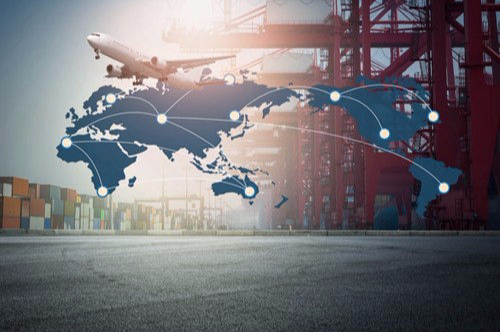
"Overseas warehouse" plays such a big role
Overseas warehouse is called Overseas Warehouse. It refers to overseas warehouses established in other countries except their own regions. In recent years, with the rapid development of cross-border e-commerce, overseas warehouses have become an extremely important part of the whole cross-border e-commerce industry chain.
From the first appearance of "overseas warehouse" in 2016, to 2017, the State Council clearly requested: expand cross-border e-commerce, build a number of export products "overseas warehouse". These conditions provide an opportunity for the rapid development of overseas warehouses. The development direction of overseas warehouses is still based on the needs of e-commerce merchants. With more Chinese manufacturing going to the world, the layout of overseas warehouses should keep pace with the changes of market demand and consumption channels, and enter more countries and regions. Overseas warehouses for cross-border e-commerce are mostly designed to alleviate the high cost of cross-border business logistics. At present, most of the large-scale export cross-border e-commerce enterprises in China choose to build overseas warehouses abroad, and each overseas warehouse has an area of 30,000-50,000 square meters, with a large scale. Among them, Europe and the United States, the Middle East, South America and so on are now widely distributed overseas warehouses in the world; because of the huge potential of market development, overseas warehouse enterprises are full of confidence.
Overseas warehouses are not just warehouses
Most of the transaction volume of cross-border e-commerce comes from the export of goods. However, under the traditional export mode, domestic products have to be increased by foreign importers, foreign wholesalers, foreign retailers and other links in order to finally reach consumers. Moreover, overseas warehousing channels have been firmly controlled by foreign trading companies. With the rapid development of cross-border e-commerce, more and more enterprises and platforms focus on overseas warehouses. With the help of overseas warehousing, domestic enterprises and business platforms can directly bypass the intermediate links and directly connect overseas purchasers, retailers and even end-users through the network platform. Overseas warehouse is no longer a simple warehouse, but a display window to display brand, after-sales, consulting, maintenance and other comprehensive services.
The emergence of overseas warehouses not only greatly reduces logistics costs and transportation costs, effectively improves the competitiveness of domestic products and goods, but also for many domestic enterprises and platforms, an overseas warehouse that can control itself can greatly improve the management and control ability of enterprises and external influence.
The existence of overseas warehouses is very powerful for cross-border e-commerce.
1. Logistics Cost Reduction
Sellers can ship some of the less standardized and bulky goods to overseas warehouses in batches by sea, such as faucets, pliers and other hardware. After the seller orders online, they can ship goods directly from overseas warehouses, which greatly reduces logistics costs.
2. Shortening time and improving efficiency
The seller stores the goods in advance to the overseas warehouse. After the buyer orders, the goods are delivered directly from the overseas warehouse. In the middle, the travel time of the package from home to abroad and the link of passing through customs are omitted, which greatly shortens the delivery time of the package and improves the efficiency.
3. Efficient management of goods and quick processing of orders
After the goods are stored in overseas warehouses, they are directly managed by overseas warehouses. After receiving orders, they are also directly handled, packaged and shipped by overseas warehouses. This is more convenient and efficient for sellers.
4. Improving customer loyalty
For cross-border e-commerce, it is difficult to provide timely after-sales services (e.g. exchange, return, etc.). Long distance at home and abroad, as well as customs clearance, make this series of after-sales services are difficult to carry out quickly. After cooperating with overseas warehouses, these problems can be solved easily. Customers encounter after-sales needs, which are directly solved by overseas warehouses. The efficiency is greatly improved. Customers'needs can be solved in time. Satisfaction and loyalty can naturally be improved.
For cross-border e-commerce under the tuyere, there is no problem of high land or construction cost in overseas warehouse construction. The main problem at present is the lack of internationalized teams and talents who are familiar with domestic and foreign markets. It is difficult for Chinese enterprises to find professionals and teams abroad to build overseas warehouses according to the management methods of Chinese enterprises. This forms a higher threshold for operation.
In an overseas warehouse of about 3000 square meters in Dubai, capital investment is very expensive, of which the labor cost accounts for about 30% - 40%. The remaining investment includes hardware, software and other equipment in the warehouse. On the other hand, difficulties arise from individual governments'policies, employment, labor force and commercial services. This requires constant investment of money and energy, invisibly raising the entry threshold for overseas warehouses.
Freight companies such as Shunfeng and Export Exchange, as well as integrated e-commerce platforms such as Jingdong and Tianmao, mostly choose to rent existing warehousing facilities in the destination country and set up enterprises in the form of independent legal persons to operate overseas warehouses for cross-border e-commerce services.
On the one hand, the initial investment cost of renting self-owned overseas warehouses is not very high, and large enterprises can adjust their operation scale according to their own strategic arrangements; on the other hand, after owning self-owned overseas warehouses, enterprises can achieve synchronization with domestic warehousing logistics information, so as to make domestic and foreign business more smoothly connected, thus effectively providing work and operation efficiency.
Shunfeng has set up 23 overseas warehouses, while another cross-border e-commerce company in Shenzhen has set up 11 branches overseas, including British warehouses, German warehouses, American warehouses and Australian warehouses operated by its own mode. The total area of overseas warehouses is 75,000 square meters. At the same time, many large and medium-sized cross-border e-commerce logistics enterprises have also withdrawn from the plan of expanding the scale of leasing their own overseas warehouses.
Compared with large e-commerce enterprises and platforms, small enterprises are obviously short of manpower and funds. For them, joint venture cooperation with local enterprises in overseas warehouse countries and multi-domestic enterprises'group leasing of overseas warehouses have become the two main choices.
In the United States, Germany, Britain, Japan, Australia and Russia, where e-commerce is more developed, the cost of manpower and warehousing is generally very high. For example, in the United States, the lowest cost of warehouse workers should be between $14 and $15 per hour. At the same time, the annual rent of warehouses abroad in the United States is about $100-120 per square metre. Such high cost consumption is hard to bear for small businesses and some sellers with less profit margin.
As a result, mutual embracing has become the first choice of many small enterprises. By decentralizing costs, financial pressures and simple information management system, the overseas warehousing operation of small enterprises is formed.
Overseas warehouses can help export enterprises seize the market, enhance the competitiveness of Chinese enterprises and increase liquidity; for cross-border e-commerce, overseas warehouses can improve the supply chain efficiency of e-commerce enterprises and reduce the purchase threshold. Overseas warehouses will be an important milestone in the development of cross-border e-commerce industry, as a platform or as a seller, we can not just use overseas warehouses. As an upgrade of logistics, we should evaluate all kinds of potential opportunities and challenges brought by overseas warehouses in an all-round way, and try our best to seize this important opportunity.
